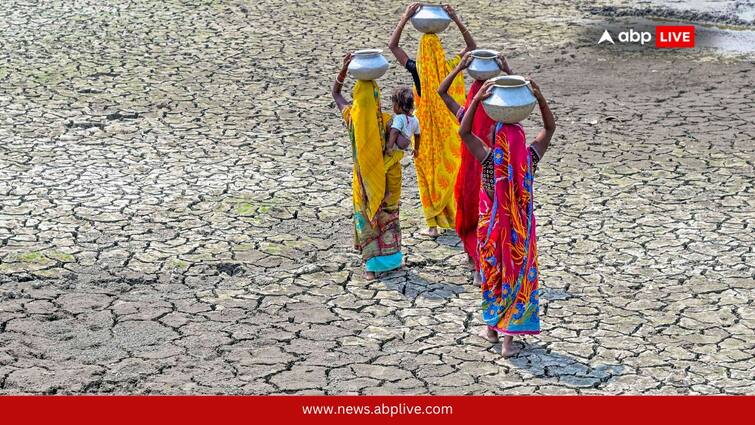COP29 At Baku: As the COP29 climate conference unfolds in Baku, Azerbaijan, the World Meteorological Organization (WMO) has released a significant report addressing the apparent crossing of the 1.5°C global temperature threshold in 2024. According to the report, the average global air temperature crossed the 1.5 degrees Celsius threshold between January and September 2024, raises questions about the feasibility of the Paris Agreement target, which aims to limit global temperature rise to 1.5°C above pre-industrial levels.
But does a single year surpassing this mark indicate that the Paris Agreement goal is now unattainable? According to WMO experts, the answer is more complex than a single-year snapshot might suggest.
One Year Above 1.5°C Does Not Mean Long-Term Failure: WMO
The Paris Agreement’s target aiming to limit global warming to well below 2°C, with efforts to cap it at 1.5°C above pre-industrial levels, is based on sustained global temperature averages, typically measured over multi-decade periods. The Intergovernmental Panel on Climate Change (IPCC) defines climate change as persistent shifts in climate patterns over extended timeframes, usually lasting decades or more.
In this context, a single-year incidence of the 1.5°C threshold getting crossed — due to natural climate variability like El Niño and La Niña events, volcanic eruptions, or shifts in ocean circulation — does not equate to a long-term failure, the WMO report says.
This distinction underscores the importance of looking beyond year-to-year fluctuations and focusing on sustained trends. While the 1.5°C mark in 2024 may capture public attention, it does not confirm that the world has permanently crossed the threshold. Instead, it reflects a period of temporary warming influenced by both human-driven emissions and natural climate factors, the report stresses.
How To Track ‘1.5°C Warming’ Breach
To track global warming levels accurately, the IPCC and WMO measure temperature changes over extended periods. The latest IPCC report, AR6, defines global warming levels based on 20-year averages, meaning that a definitive exceeding of the 1.5°C or 2°C targets is only acknowledged when the observed temperature increase averages these levels across two decades.
By this definition, it would take a decade or more after breaching the 1.5°C annual threshold to confirm sustained warming at that level. A 10-year average approach, like that used in some recent IPCC and WMO assessments, would still result in a five-year reporting delay, the WMO notes in its report.
This method, while scientifically robust, introduces a lag in recognising sustained exceedance, which could delay global response efforts. To address this, the WMO and the scientific community are actively exploring alternative approaches that might provide more immediate indicators of global temperature levels.
ALSO READ ON ABP LIVE | COP29: Paris Agreement Goals On Climate Change ‘In Great Peril’, Warns World Meteorological Organization
Estimateing Current Global Warming In Real Time
In light of the 2024 milestone, researchers are developing new methods to better estimate current global warming in real time. Three main approaches are under consideration:
- Combining Historical Data With Climate Projections: This method involves blending past temperature records with climate model forecasts, which could provide a more dynamic and current estimate of warming levels.
- Trend Estimation Via Statistical Techniques: Techniques such as Locally Estimated Statistical Smoothing (LOESS) can help identify underlying warming trends within temperature data, allowing scientists to estimate where the planet’s long-term warming trend stands today.
- Attributing Human-Driven Warming: By isolating the human-caused warming component, scientists can better understand the impact of human activities on overall temperature increases.
ALSO READ ON ABP LIVE | Lancet Report Raises Alarm On India’s Growing Heat Toll
Every Fraction Of A Degree Matters
The 2024 temperature spike serves as a reminder of the climate system’s sensitivity to both natural and human influences. Each fraction of a degree of warming escalates climate risks, intensifying extreme weather events, biodiversity loss, and health impacts, the WMO warns. While a temporary 1.5°C exceedance in 2024 does not seal the fate of the Paris Agreement, it emphasises the urgency of intensified global efforts to reduce greenhouse gas emissions.







:quality(70)/cloudfront-us-east-1.images.arcpublishing.com/tronc/36GVY5XOGBB5HCZ7NG7A6GLH6I.jpg)






